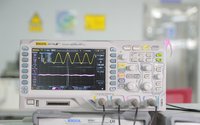What does reliability testing include? IC chip device detection
Date:2024-04-29 10:13:56 Views:1734
Reliability testing is the process of evaluating the performance and reliability of electronic devices under specific environmental conditions. For IC chip devices, reliability testing is particularly important because they are widely used in various critical systems, such as automobiles, aerospace, medical equipment, etc. When conducting reliability testing of IC chip devices, the following aspects are usually involved:
1. Temperature Testing: Temperature testing is one of the most common reliability tests. It is usually divided into high temperature, low temperature, and temperature cycling tests. High temperature testing can simulate the working conditions of devices in high temperature environments, while low temperature testing simulates the working conditions in extreme cold environments. The temperature cycling test simulates the impact of temperature changes on device performance, such as internal stress caused by thermal expansion and contraction.
2. Humidity Testing: Humidity testing is used to evaluate the performance of devices in high humidity environments. Humidity can cause corrosion of metal components on circuit boards, aging of insulation materials, and other issues. Therefore, humidity testing is crucial for evaluating the long-term stability of devices.
_20240429100308_773.jpg)
3. Mechanical Shock Testing: Mechanical shock testing simulates the physical impact that a device may experience during transportation or use. These impacts may cause internal connections to become loose or damaged, thereby affecting the performance and reliability of the device.
4. Vibration Testing: Vibration testing is used to evaluate the performance of devices in vibration environments. Vibration may cause issues such as solder joint breakage and loosening of internal components of the device, so vibration testing is crucial for evaluating the reliability of the device in vibration environments such as transportation and mechanical equipment.
5. Voltage Stress Testing: Voltage stress testing evaluates the withstand voltage performance of a device by applying a high voltage. This can help detect the stability and reliability of devices under overvoltage conditions, and prevent device damage caused by voltage fluctuations.
6. Lifetime Testing: Lifetime testing is used to evaluate the performance stability of devices under long-term operation. By accelerating aging testing, the lifespan of devices in actual usage environments can be predicted, thereby identifying potential issues in advance and making improvements.
The reliability testing of IC chip devices involves multiple aspects, including temperature, humidity, mechanical impact, vibration, voltage stress, and lifespan testing. These tests can help ensure that the device maintains stable performance in various extreme environments, thereby improving the reliability and durability of the system.
Chuangxin Testing always adheres to the principle of "professionalism, authority, efficiency, and innovation", and has purchased international advanced testing equipment with a heavy investment. The testing strictly follows international testing standards and methods, and is recognized by the China National Accreditation Service (CNAS) and the Guangdong Provincial Administration for Market Regulation (CMA). The testing reports issued by Chuangxin Testing have international mutual recognition effect, and can be recognized by 70 laboratory accreditation institutions in 58 countries around the world. Welcome to call, we will be happy to serve you!




 Weixin Service
Weixin Service

 DouYin
DouYin
 KuaiShou
KuaiShou





















